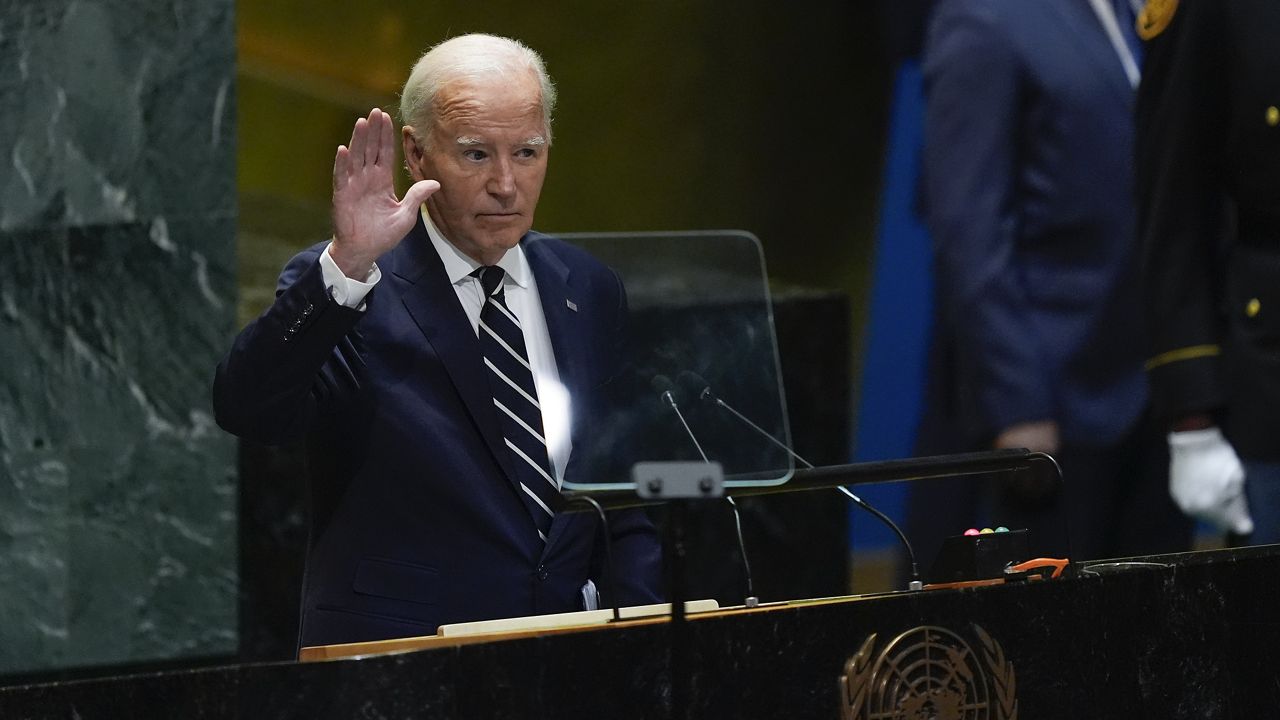World
Biden invokes exit from 2024 race for message to world at U.N.

In his last address at the United Nations General Assembly as commander in chief, President Joe Biden invoked his own decision to drop his bid for reelection as he called on world leaders to remember who they serve.
“This summer, I faced a decision: whether to seek a second term as president. It was a difficult decision,” Biden told those gathered for the U.N. General Assembly on Tuesday.
“Being president has been the honor of my life. There’s so much more I want to get done,” he continued before noting his decision to exit the race. “My fellow leaders, let us never forget: some things are more important than staying in power. It’s your people.”
The president’s remarks come with four months still left in his term — and the potential for more trips overseas and foreign policy-focused speeches. But in some ways, Tuesday’s address was seen as a chance for the one-time Senate Foreign Relations Committee Chair to cap the foreign policy portion of his more than five decades in politics.
And Biden on Tuesday ran through his experience on the issue and America’s place on the world stage throughout his career, noting the U.S. was at war with Vietnam during his early days in the Senate and mentioning that former President Barack Obama tasked him with winding down military operations in Iraq when he was vice president.
He used the full-circle moment to make the case that the world is stronger when allies stand together — a rebuke to his predecessor, former President Donald Trump, and some in the GOP who have adopted the Republican nominee’s isolationist approach.
“Our task, our test, is to make sure that the forces holding us together are stronger and those that are pulling us apart, that the principles of partnership that we came here each year to uphold can withstand the challenges,” Biden said. “I truly believe we’re at another inflection point in world history, where the choices we make today will determine our future for decades to come.”
The president did not shy away from addressing the foreign policy issue – the U.S. withdrawal from Afghanistan in which 13 U.S. troops were killed in an attack at Kabul airport – that has been credited with sparking a sinking of his approval ratings and has become a major line of attack from Republicans.
“When I came to office as president, Afghanistan had replaced Vietnam as America’s longest war – I was determined to end it, and I did,” he said. “It was a hard decision, but the right decision.”
“Four American presidents had faced that decision, but I was determined not to leave it to the fifth,” Biden continued.
He added that he thinks about the thirteen U.S. lives lost “every day.”
The president on Tuesday also touted his work on climate, including rejoining the Paris Agreement and shepherding the U.S. to be on track to cut emissions in half by 2030 and quadruple climate-related funding to developing nations.
He also called for an expansion of the U.N. Security Council to allow for “new voices and new perspectives” and touched on artificial intelligence, the wars in Gaza, Ukraine, Sudan and the prospects of a wider war in the Middle East.
Middle East
On the war in Gaza, Biden, as he has done for months now, emphasized the need for Israel and Hamas to fully sign off on a cease-fire and hostage release deal that the U.S., Egypt and Qatar have spent months trying to get across the finish line.
“Now is the time for the parties to finalize its terms, bring the hostages home and ensure security for Israel and Gaza free of Hamas … ease the suffering in Gaza and end this war,” Biden said.
But this time, Biden’s address also came amid a surge in violence between Israel and Lebanese militant group Hezbollah, escalating and bringing a new urgency to longstanding concerns that the war in Gaza could expand into a wider regional conflict. Strikes between the two in recent days have killed hundreds in Lebanon, according to local officials.
Biden on Tuesday insisted a “full-scale war” is “not in anyone’s interest,” while pledging that a “diplomatic solution is still possible.”
“In fact, it remains the only path to lasting security to allow the residents from both countries to return to their homes on the border safely,” he said. “And that’s what we’re working tirelessly to achieve.”
Biden also called for an immediate end to the civil war in Sudan.
Ukraine
On Russia’s more than two and a half year-old war in Ukraine, Biden touted NATO stepping up in the immediate aftermath of Putin’s invasion and gave a shout-out to his vice president, Kamala Harris, who is looking to defeat Trump and win the White House in November.
He went on to call on world leaders to not “grow weary” in support of Ukraine.
“We cannot look away, and we will not let up on our support for Ukraine, not until Ukraine wins with just and durable peace,” he vowed.
Artificial intelligence
Biden also dedicated time to artificial intelligence as lawmakers in the U.S. and around the world grapple with how to approach regulation of the rapidly growing technology. The president warned about the risks that come with AI while also stressing the potential benefits, declaring that how leaders deal with it in the years ahead may be the greatest “test of our leadership.”
“We must make certain that the awesome capabilities of AI will be used to uplift and empower everyday people, not to give dictators more powerful shackles on the human spirit,” he said.
Following his remarks on Tuesday morning, Biden sat down for a meeting with U.N. Secretary-General Antonio Guterres. He was set to deliver remarks on tackling the global synthetic drug crisis and climate later on Tuesday.










